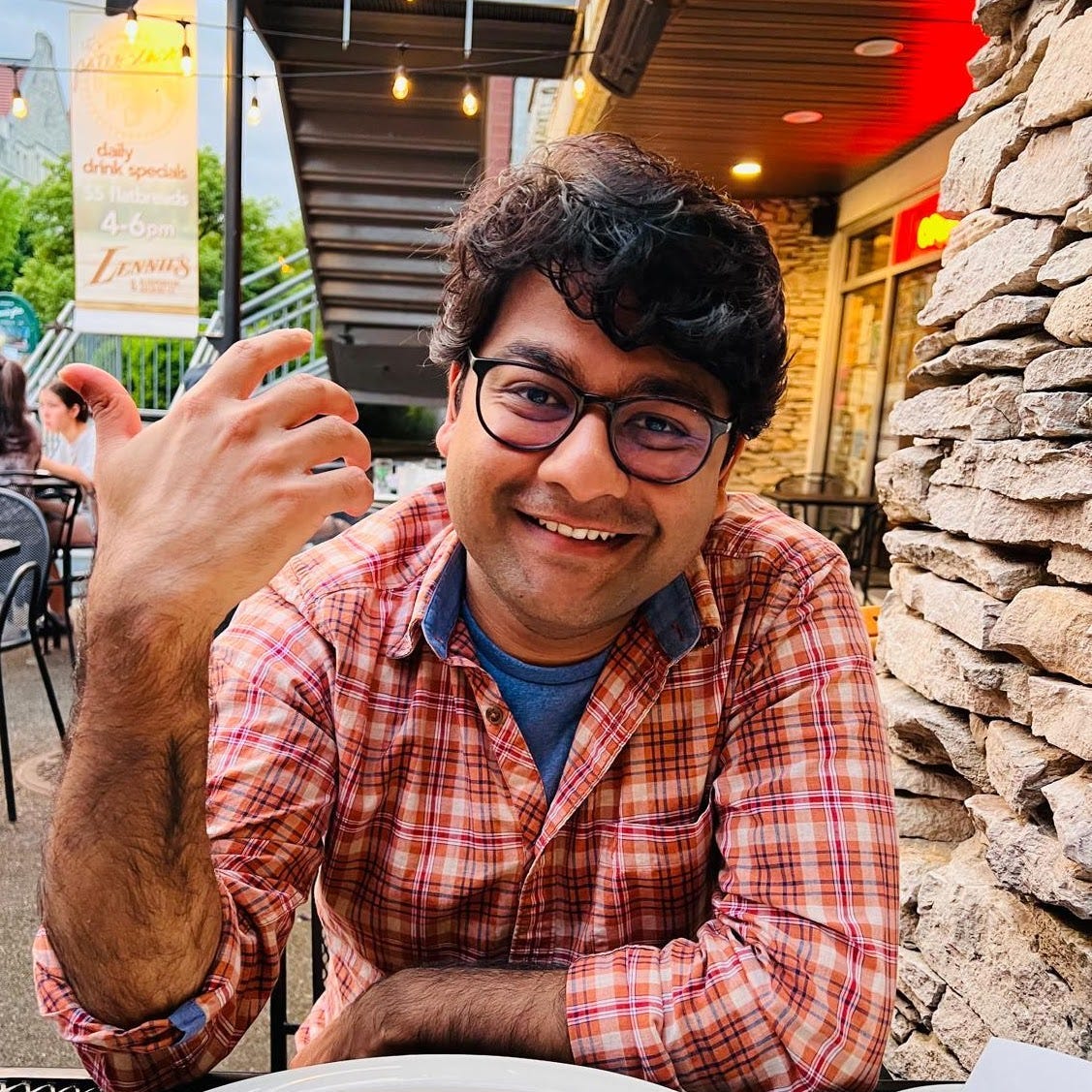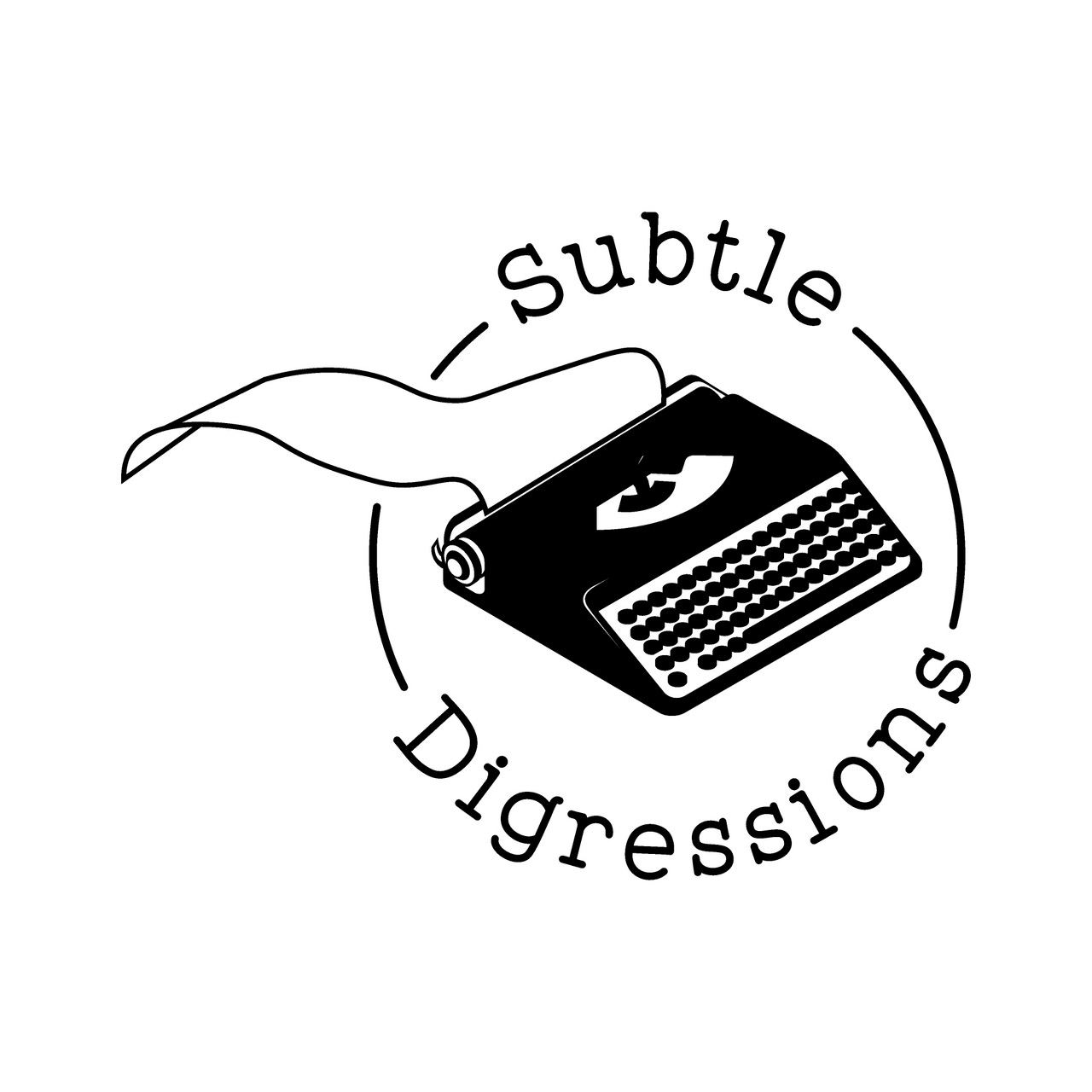The magic in-between the ordinariness
A guest post by Yashvardhan Jain
Exploring Life and Literature
I have always dreamed of being a part of a writer’s and artist’s commune, a place where creative minds gather together to discourse over big ideas. Idyllic, I know, and likely unrealistic in execution. Publishing Beyond the Bookshelf affords me the opportunity to invite other creative minds to share their thoughts and ideas on life and literature in an effort to broaden the conversation beyond my lone voice.
Today I am excited to bring you an essay by Yashvardhan Jain. Yash was born in northern India. He did his Bachelor’s in Computer Science and moved to the US to pursue a Master’s Degree in the same. While he always loved reading, the idea of being a writer only took over in his mid-twenties. He currently resides in Indiana, US, working as a research engineer in academia by day. At night (and on the weekends), he writes Subtle Digressions as a way to explore stories–real and fictional–at the intersection of literature, history, and philosophy. He is also working on his first novel–a coming-of-age magic realism story. In terms of books and writers, some of his favorites are the Harry Potter books, Charles Dickens, Donna Tartt, Neil Gaiman’s writing, and Haruki Murakami. He prefers mountains more than beaches and loves taking long walks through the city (or wherever he is).
In the empty space between you and I lies a certain magic, hidden from our eyes but perpetually present. There is no need for wands and rings, no need for trains and wardrobes. Imagine what it would be like if Harry didn’t have to go through the wall to reach platform Nine and Three-Quarters. What if there were two moons in the sky tonight? What if the skinny gray cat sitting on the wall outside started talking to you? Imagine.
That is the world of Haruki Murakami. A world full of magic in the ordinariness of the real world. When I read Murakami for the first time, my world exploded. He showed me what was possible in the world of writing and storytelling. I finally found my favorite genre, a world of my own: Magic Realism.
Memories of childhood get hazy and untrustworthy, but I believe the first proper novel I ever read was Harry Potter and the Chamber of Secrets. I was in fifth grade and it was summer vacation. In the busy, hot afternoon market, my mother stepped into a small bookshop to buy some magazines (or something else? I can’t remember), and there I laid my eyes on the Harry Potter books. They only had the second part and the seventh part. I picked the one that looked less daunting in size. Most of my childhood and teenage years were spent daydreaming, living in that magical world inside my head, and creating my own characters and adventures. I wanted to live forever in the magic of that world, waiting for my own letter from Hogwarts telling me I was a wizard. The letter never came. I was a muggle after all.
In terms of genre, while Harry Potter is considered fantasy, I think it still has magic realism in it to some extent. The wizards and witches don’t go off living in a different dimension but walk amongst us muggles in their funny hats and odd cloaks. There is magic, literally, in-between the ordinary lives that walk the streets.
Just as the Harry Potter books transformed me in fifth grade, Haruki Murakami brought about the second major transformation in my life.
The first Murakami book I read was A Wild Sheep Chase, his third novel, technically, but his first proper novel. Instantly, I was hooked. I read his first two books (which I would recommend only to the die-hard Murakami fans), completing the Rat Trilogy, his kitchen table novels, as he calls them, since he wrote them at his kitchen table in the late hours of the night. Then I read Norwegian Wood and Kafka on the Shore and 1Q84. I dread the day I will run out of Murakami novels to read.
To me, Kafka on the Shore is a novel that feels life-altering. It makes me feel what Gabriel García Márquez felt when he read Franz Kafka's Metamorphosis.
“You can do that?” I thought. I was surprised. The way Murakami plays with POVs and writing styles, sometimes first-person, sometimes third-person, and sometimes as reports or interviews, felt like a new way to write a novel. Talking cats, cat murderers, and fish raining down the sky; all happening in the city streets and the countryside in Japan amongst regular people doing regular things and living regular lives on regular days.
There is a certain loneliness in Murakami’s work: it is in the characters that inhabit his worlds and it is in the stories he tells. There is beauty, an attractive quality, in the loneliness that flows through his words that makes me feel more connected to his fictional worlds. In Murakami’s world full of Jazz and Japan, people aren’t clearly separated into good and bad, black and white, wheat and chaff. People exist in the space between good and bad. They exist in the gray. Is that why it appeals to me and millions of readers all over the world? Do we see ourselves in these characters? Do we feel seen, complete with our faults and scars and imperfections, in Murakami’s gray characters?
Murakami never intended to be a writer. One sunny afternoon, while watching a baseball game, he thought, “I could write a novel.” He went home and started writing one. Over the next few months, he wrote his first novel, the first of the Rat Trilogy, and submitted it to a literary journal. He forgot all about it until one day an editor from the journal called to tell him that he had been short-listed for the New Writers Prize. In his book Novelist as a Vocation, Murakami writes that if he hadn’t received that call, he probably would not have written another novel.
Murakami has found magical things in his real life, not wand magic but surreal things that he could not explain. Once, while running his jazz bar and broke, he needed to make a bank payment the next day. The night before he found the exact amount dropped in a street somewhere. He took that money and made the payment. Where did the money come from? Who knows. And we don’t need to know. In magic realism, we don’t need to know how the fish fell from the sky.
In 1967, John Barth proclaimed that the novel was dead in his essay “The Literature of Exhaustion.” Then came Gabriel García Márquez with One Hundred Years of Solitude and a few others, changing what the novel could do. In 1979, Barth proclaimed that the novel was not dead yet, after all, in his essay “The Literature of Replenishment.”
And thank goodness the novel is not dead for I don’t know what I would do or who I would be if not for the novel. If the Harry Potter books had not been written, I would not have been a reader. I would not be a writer either. If Murakami hadn’t picked up the phone that day announcing his novel had been short-listed for a prize, I don’t think I would be working toward my first novel; I would not be an aspiring novelist.
Murakami says that his books sell the most whenever the world starts to fall apart. In depression and war, people flock to escape the grim reality of their lives and choose instead the world constructed by Murakami. Are these merely escapist fantasies?
We read to feel and to escape reality, such is the general consensus at least. But maybe magic realism shows us there is a different way to think about stories. Maybe we don’t read to escape but instead, the stories we read and the characters we conjure exist with us in our ordinary world. They exist in the empty space between us, infusing our world and our lives endlessly and fully, making it richer. Novels aren’t an escape from reality, they are part of it.
That is what magic realism is to me: magic is not beyond the confines of this world; it is infused within the reality of our lives. All we need to do is look around, and even if we don’t see it, we can be comforted in the knowledge that it is still there, invisible yet ever-present.
Beyond the Bookshelf is a reader-supported publication. If you have the means and desire, please consider upgrading to a paid subscription.
Until next time…









"Murakami never intended to be a writer. One sunny afternoon, while watching a baseball game, he thought, “I could write a novel.” He went home and started writing one."
Maybe this story is true. Or maybe Murakami is adding some magical realism to his biography. Isn't that the point of your article? The magic is there, we just need to see it to be a part of it.
This was a great read. Thank you Matthew and Yashvardhan. Magical realism and historical fiction are my two favorite genres in fiction. I love authors that manage to combine both.